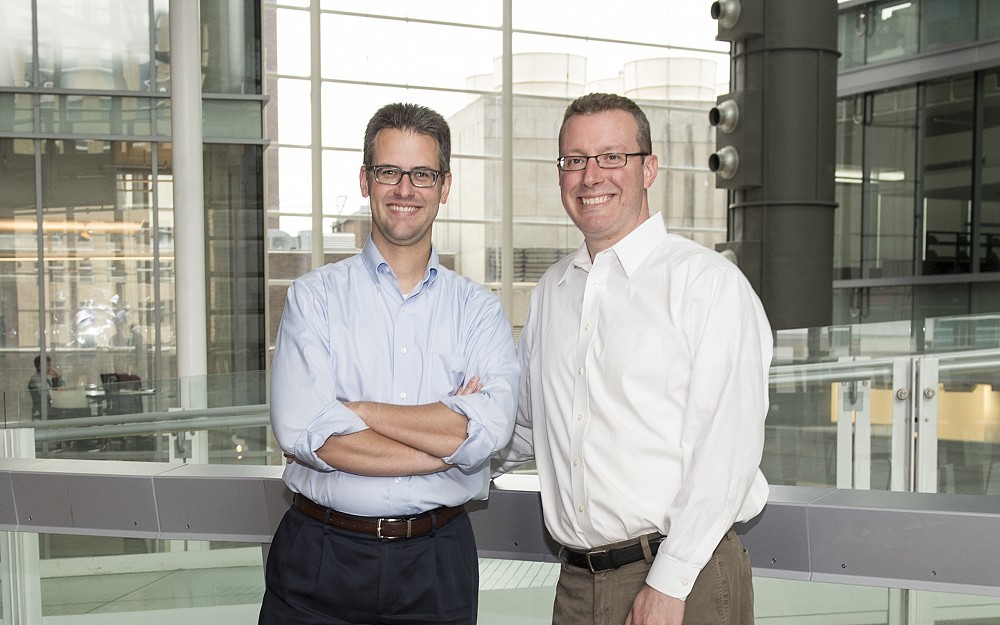
College of Medicine Faculty Among Accelerator Award Winners
Three College of Medicine faculty are among the recipients of awards by the University of Cincinnati Technology Accelerator for Commercialization (UCTAC). These competitive proof-of-concept grants, given out three times a year, fund translational research on UC technologies with the goal of turning new innovation into local startup companies.
Xiaoting Zhang, PhD, associate professor in the Department of Cancer Biology at the UC College of Medicine was selected for his project, "Overcoming Therapeutic Resistance of Human Breast Cancer by Multifunctional RNA Nanoparticles. This research looks at developing their recently established RNA nanoparticles that target HER2-positive breast cancer and stop production of the protein MED1 to slow tumor growth, stop cancer from spreading and sensitize the cancer cells to treatment with tamoxifen, a known therapy for estrogen-driven cancer.
MED1 is a protein often produced at abnormally high levels in breast cancer cells that when eliminated is found to stop cancer cell growth. HER2-positive breast cancer involves amplification of a gene encoding, or programming, the protein known as human epidermal growth factor receptor 2, which also promotes the growth of cancer cells. MED1 co-produces (co-expresses) and co-amplifies with HER2 in most cases, and Zhangs previous studies have shown their interaction plays key roles in anti-estrogen treatment resistance.
Justin Benoit, MD, assistant professor and Jason McMullan, MD, associate professor, both in the Department of Emergency Medicine at the UC College of Medicine were selected for their project, "Breathing for the Patient: The Forgotten Half of Cardiopulmonary Resuscitation. With the help of Ephraim Gutmark, PhD, professor in the Department of Aerospace Engineering and Engineering Mechanics in the College of Engineering and Applied Science, this project will construct a prototype device that attaches in-line to a bag-valve mask to provide real-time feedback and after-action reports on rescue breaths delivered to a patient in cardiac arrest.
This device will enable paramedics and hospital personnel to better follow American Heart Association guidelines for cardiac arrest and facilitate future research on how oxygenation, ventilation and airway management affects patient outcomes.
Zhang, Benoit and McMullan and the other winning teams will receive immediate training on the outlines of the accelerator process and what their obligations are under the award. They will be assigned an entrepreneur-in-residence to advise them over the next six to twelve months and will conduct both proof-of-concept research and market discovery and customer validation.

Xiaoting Zhang, PhD, in his cancer biology lab at the Vontz Center for Molecular Studies.
Related Stories
Leaders, scholars, changemakers: CoM students earn prestigious...
May 13, 2025
The University of Cincinnati's College of Medicine is proud to celebrate the outstanding achievements of three remarkable students, who have been recognized with two of the university’s highest honors.
Engineers develop stress test to measure cortisol
May 12, 2025
Yahoo! Finance highlights research into home tests that can diagnose stress and cardiac issues.
The latest efforts in cervical cancer prevention
May 12, 2025
Medical Laboratory Observer interviewed the University of Cincinnati Cancer Center's Leeya Pinder to discuss the current state and future of cervical cancer prevention.
